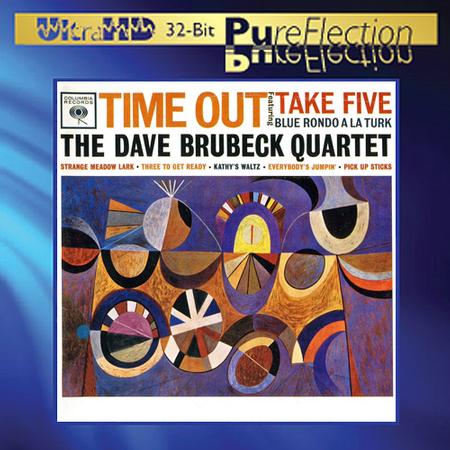

“Three to Get Ready,” “Kathy’s Waltz,” and “Pick Up Sticks” are built on well-crafted rhythmic conceits that prompt solid performances across the board. “Strange Meadow Lark” has a beautiful out-of-tempo piano intro and a goosebump-worthy Desmond entrance. There is also more to Time Out than “Take Five” and “Blue Rondo a la Turk,” the blockbuster tracks. That Desmond alto, underscored by Morello’s brushes on snare drum, remains one of the most identifiable sounds in jazz. So does Desmond, whose boundlessly lyrical, almost clarinet-like alto sax improvisations epitomized the softer timbre and relaxed vibe of West Coast jazz. His approach was eclipsed by the lithe modernism of McCoy Tyner, Chick Corea, and Herbie Hancock, but in terms of musical content and personality, Brubeck stands the test of time. Brubeck’s piano was steeped in blues and had a palpable connection to stomp, boogie-woogie, and earlier jazz styles. Yet the quartet exhibited a developed sense of swing thanks to bassist Eugene Wright and drummer Joe Morello. The fast and asymmetrical pulse of “Blue Rondo a la Turk,” the opening track, bore traces of Balkan and Turkish influence. The impetus for the rhythms of Time Out came in part from Western classical music, in part from the band’s travels in India, the Middle East, and elsewhere. Yet as avant-garde cornetist Taylor Ho Bynum wrote in The New Yorker shortly after Brubeck’s death in 2012, “Those musicians, too hip for their own good, who dismiss Brubeck as square do so at their own loss.” Time Out and the rest of the quartet’s “time” concept albums (Time Further Out, Time Changes, Countdown: Time in Outer Space, Time In) merit close attention as some of the most engaging and unique small-group jazz of the era. 2 on the Billboard pop charts, but it also yielded jazz’s best-selling single of all time: “Take Five.” Written by alto saxophonist Paul Desmond, the tune had a novel 5/4 groove but ultimately came to be identified with a kind of inoffensive hotel lounge jazz. Time Out, his 1959 foray into odd time signatures, polyrhythm, and mixed meter, not only ended up going platinum and reaching No.

( Times are as given on the CD the album numbers differ slightly.It’s ironic that in Dave Brubeck’s attempt to make jazz more complex, he actually made it more accessible. Throughout Time Inīrubeck’s compositions bring out the best in Desmond, whose light, airy sound was the musical equivalent of a martini so dry it would have passed inspection by Winston Churchill." Track listing 'Softly, William, Softly' is a deeply expressive ballad, and 'Lonesome' is equally moving. On the ironically-titled opening track, 'Lost Waltz', the group swings with an urgency that reaches its peak during Brubeck’s vigorous solo. With more than two dozen albums behind them by the time this album was recorded, was the foursome a spent force? Definitely not-and, in fact, one listen to Time In will dispel any notions of the quartet as 'polite jazz'. Time In was also one of the final records by a much-loved quartet that included Paul Desmond on alto saxophone.
#DAVE BRUBECK QUARTET TIME OUT SONY SERIES#
The Absolute Sound's Jeff Wilson wrote: "This 1965 release ended the Dave Brubeck Quartet’s series of time-themed albums, the most famous being 1959’s Time Out, which contained the ever-popular ' Take Five'. Though it is seldom celebrated as such, this is one of Brubeck's finest moments on Columbia." of all the 'Time' recordings, this is the least commercial. Stylistically, they cover a considerable range, from slow ballads in a West Coast jazz sound, to some of the religiously themed work he began to essay in the later 1960s ( Forty Days, which would later appear in his The Light in the Wilderness: An Oratorio for Today), to more driving bebop-influenced numbers.ĪllMusic's reviewer Thom Jurek wrote that it was "one of his most musically adventurous. Time In is a 1966 studio album by Dave Brubeck, the last of Brubeck's 'Time' series.Īll the compositions on it were written by Dave Brubeck (two co-written with his wife Iola Brubeck), and performed by the Dave Brubeck Quartet. Anything Goes! The Dave Brubeck Quartet Plays Cole Porter


 0 kommentar(er)
0 kommentar(er)
